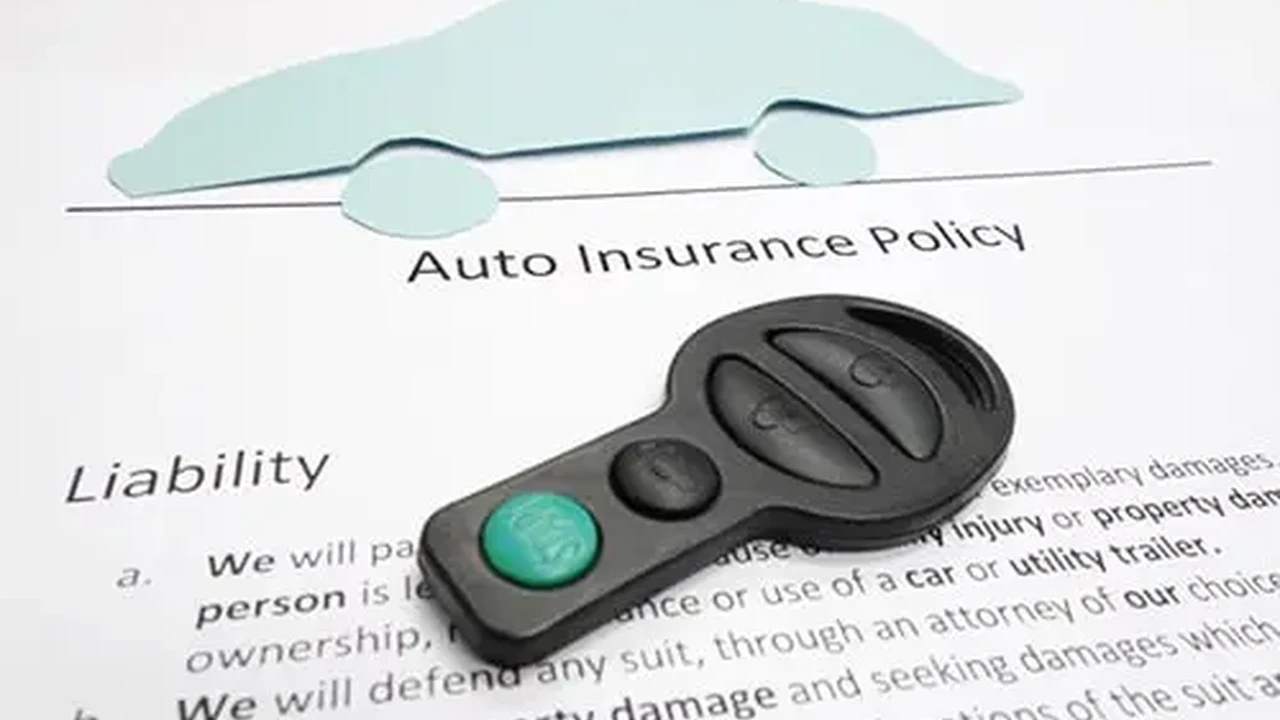Medical Payments Coverage: Paying for Medical Bills

Understanding Medical Payments Coverage MedPay Explained Simply
So, you've been in a fender bender. Not fun, right? Even worse, you or someone in your car got hurt. Besides the stress of the accident itself, you're now facing medical bills. That's where Medical Payments coverage, often called MedPay, comes in. Think of it as a safety net that helps pay those bills, regardless of who was at fault for the accident. Pretty neat, huh?
What Does Medical Payments Coverage Cover Common Medical Expenses
MedPay isn't just for the big stuff. It covers a wide range of medical expenses resulting from a car accident. We're talking about things like:
- Ambulance rides (because those can be surprisingly expensive!)
- Doctor's visits, including specialists
- Hospital stays
- X-rays and other diagnostic tests
- Surgery
- Nursing services
- Prosthetic devices
- Even dental work if your teeth get damaged in the accident!
Basically, if it's a reasonable and necessary medical expense related to the accident, MedPay will likely cover it. It's always a good idea to check your specific policy for the exact details.
Who Is Covered Under Medical Payments Coverage Passengers and Family
Here’s the cool part: MedPay usually covers you, the policyholder, no matter where you are when the accident happens. Whether you're in your own car, someone else's car, or even if you're a pedestrian hit by a car, MedPay can kick in. It also typically covers your family members who live with you. Plus, it covers passengers in your car at the time of the accident. So, it's a pretty broad safety net for you and those around you.
When Does Medical Payments Coverage Apply Fault and Accident Scenarios
One of the biggest advantages of MedPay is that it pays out regardless of who was at fault for the accident. Even if you caused the accident, MedPay will still cover your medical bills and those of your passengers. This is especially helpful if there's a dispute about who was at fault, or if the other driver is uninsured or underinsured. It means you can get the medical treatment you need without waiting for the insurance companies to sort things out.
Medical Payments Coverage vs Health Insurance Understanding the Differences
Now, you might be thinking, "I already have health insurance. Why do I need MedPay?" That's a valid question. Here's the thing: MedPay can work in conjunction with your health insurance. It can cover things that your health insurance doesn't, like deductibles, co-pays, and certain types of treatment. It can also pay out faster than your health insurance, which can be a lifesaver when you're facing immediate medical bills. Plus, if you don't have health insurance, MedPay is even more crucial.
How Much Medical Payments Coverage Do I Need Determining the Right Amount
How much MedPay coverage should you get? That depends on a few factors, like your health insurance coverage, your risk tolerance, and your budget. A good rule of thumb is to get enough coverage to cover your health insurance deductible and co-pays. You should also consider the potential medical costs associated with a car accident. Think about things like ambulance rides, hospital stays, and surgery. Talk to your insurance agent to figure out the right amount of coverage for your specific needs.
Medical Payments Coverage Cost Factors Affecting Premiums
The cost of MedPay coverage varies depending on several factors, including:
- The amount of coverage you choose
- Your location
- Your driving record
- Your insurance company
Generally, MedPay coverage is relatively inexpensive, especially compared to the potential medical costs it can cover. It's definitely worth considering adding it to your car insurance policy.
Top Medical Payments Coverage Providers Comparing Insurance Companies
Okay, let's talk about some specific insurance companies that offer good MedPay coverage. Keep in mind that availability and specific terms can vary by state.
- State Farm: State Farm is a large, reputable insurance company that offers comprehensive car insurance coverage, including MedPay. They are known for their good customer service and competitive rates.
- GEICO: GEICO is another popular choice, known for its affordable rates and easy online quote process. They offer a variety of MedPay coverage options to suit different needs and budgets.
- Progressive: Progressive is a well-known insurer with a user-friendly website and a wide range of coverage options. They offer MedPay coverage with various limits and deductibles.
- Allstate: Allstate is a reputable insurer that provides comprehensive car insurance coverage, including MedPay. They are known for their strong financial stability and reliable claims service.
Medical Payments Coverage Product Recommendations Specific Policy Features
Let's dive into some specific product recommendations with estimated prices (these are just examples, actual prices will vary):
- State Farm MedPay - "Basic Protection": This entry-level policy offers $5,000 in MedPay coverage. It's a great option for those with good health insurance who just want a little extra protection. Estimated cost: $20-$30 per year.
- GEICO MedPay - "Standard Coverage": This policy offers $10,000 in MedPay coverage and includes coverage for accidental death and dismemberment related to the accident. Estimated cost: $40-$60 per year.
- Progressive MedPay - "Enhanced Protection": This policy offers $25,000 in MedPay coverage and includes coverage for lost wages due to the accident. It's a good choice for those who are self-employed or have a high income. Estimated cost: $80-$120 per year.
- Allstate MedPay - "Comprehensive Plan": Offers $50,000 in coverage and includes coverage for alternative medical treatments, such as chiropractic care and acupuncture. Ideal if you prefer holistic approaches to healing. Estimated cost: $150-$200 per year.
Medical Payments Coverage Usage Scenarios When to File a Claim
So, when exactly should you file a MedPay claim? Here are a few scenarios:
- You're injured in a car accident, regardless of who was at fault. Even if you caused the accident, MedPay will cover your medical bills.
- Your passengers are injured in your car. MedPay will cover their medical bills, regardless of who was at fault.
- You're injured as a pedestrian or cyclist by a car. MedPay can cover your medical bills even if you weren't in a car at the time of the accident.
- You need to pay your health insurance deductible or co-pays. MedPay can help cover these out-of-pocket expenses.
- You need immediate medical treatment and don't want to wait for your health insurance to process the claim. MedPay can pay out quickly, allowing you to get the treatment you need right away.
Medical Payments Coverage Product Comparison Analyzing Policy Features
Let's compare the features of the different MedPay policies mentioned above:
| Feature | State Farm "Basic" | GEICO "Standard" | Progressive "Enhanced" | Allstate "Comprehensive" | |---------------------|----------------------|--------------------|------------------------|-------------------------| | Coverage Amount | $5,000 | $10,000 | $25,000 | $50,000 | | Accidental Death | No | Yes | Yes | Yes | | Lost Wages | No | No | Yes | Yes | | Alternative Therapies | No | No | No | Yes | | Estimated Cost | $20-$30/year | $40-$60/year | $80-$120/year | $150-$200/year |As you can see, the best policy for you will depend on your individual needs and budget.
Medical Payments Coverage Understanding Policy Exclusions and Limitations
While MedPay is great, it's not a magic bullet. There are some exclusions and limitations to be aware of:
- Intentional acts: MedPay won't cover injuries that are intentionally inflicted.
- Injuries sustained while committing a crime: If you're injured while committing a crime, MedPay likely won't cover your medical bills.
- Injuries sustained while using your car for commercial purposes (unless you have the proper coverage): If you're using your car for Uber or DoorDash, you'll need a special commercial policy to be covered.
- Injuries that exceed the policy limits: Once you reach the maximum coverage amount, MedPay will no longer pay for medical bills.
Medical Payments Coverage Filing a Claim Step by Step Guide
Okay, so you need to file a MedPay claim. Here's how to do it:
- Report the accident to your insurance company as soon as possible.
- Gather all relevant documentation, including medical bills, police reports, and any other documents related to the accident.
- Fill out the MedPay claim form provided by your insurance company.
- Submit the claim form and all supporting documentation to your insurance company.
- Follow up with your insurance company to check on the status of your claim.
It's also a good idea to keep copies of everything you submit to your insurance company.
Medical Payments Coverage and Subrogation What You Need to Know
Subrogation is a tricky concept, but it's important to understand. Basically, it means that if you receive a MedPay payout and then later recover damages from the at-fault driver, your insurance company may have the right to be reimbursed for the MedPay benefits they paid you. This is to prevent you from receiving a double recovery for the same medical expenses. The specifics of subrogation vary by state, so it's best to consult with an attorney if you have any questions.
Medical Payments Coverage and Uninsured/Underinsured Motorist Coverage How They Work Together
MedPay can work in conjunction with Uninsured/Underinsured Motorist (UM/UIM) coverage. If you're injured by an uninsured or underinsured driver, MedPay can cover your initial medical bills. Then, you can file a UM/UIM claim to recover additional damages, such as pain and suffering, lost wages, and future medical expenses. MedPay can help bridge the gap until your UM/UIM claim is settled.
Medical Payments Coverage State Specific Regulations and Requirements
It's crucial to remember that car insurance laws, including those related to MedPay, vary significantly from state to state. Some states are "no-fault" states, which means that your own insurance company will pay for your medical bills regardless of who was at fault for the accident. Other states are "at-fault" states, which means that the at-fault driver's insurance company will pay for your medical bills. MedPay can be particularly valuable in at-fault states, as it can provide immediate coverage while you're waiting for the other driver's insurance company to process your claim. It's always a good idea to research the specific car insurance laws in your state.
Remember to consult with a qualified insurance professional or legal expert for personalized advice tailored to your specific situation and location. Insurance policies and regulations can be complex, and it's always best to ensure you have a clear understanding of your coverage.
:max_bytes(150000):strip_icc()/277019-baked-pork-chops-with-cream-of-mushroom-soup-DDMFS-beauty-4x3-BG-7505-5762b731cf30447d9cbbbbbf387beafa.jpg)






